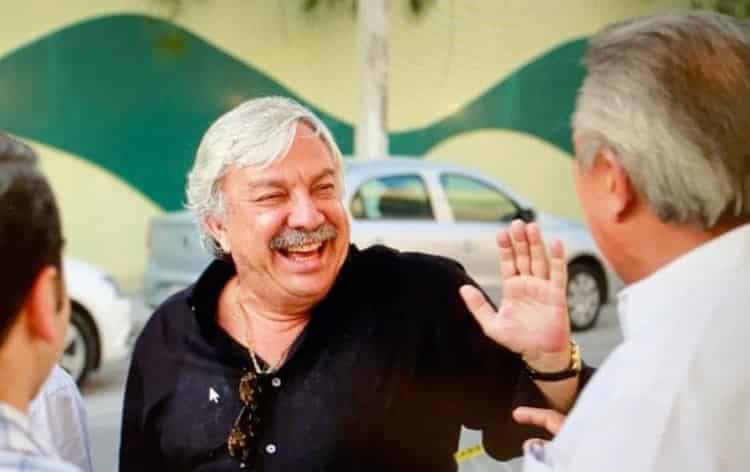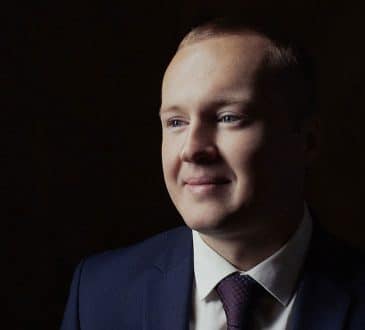Elias Landsmanas: Here’s Why Sustainable Transportation Programs Matter

In early March, Mexico-based company Corporativo Kosmos—a national leader in food service—announced that it was joining the country’s voluntary Clean Transportation Program.
The move makes total sense given Corporativo Kosmos’s stature and well-documented commitment to sustainability initiatives. Under the leadership of company president Elías Landsmanas Dymensztejn, Corporativo Kosmos has pledged to find ways to reduce both CO2 emissions and methane usage by its transportation fleets.
Says Elías Landsmanas, “The Corporativo Kosmos Sustainability Platform is proudly at the forefront of industry efforts to be better environmental citizens of the world.”
With Mexico’s Clean Transportation Program, the hope is to reduce companies’ carbon footprints, which measures the impact they have on the planet’s climate.
So, what does the program look like?
Clean Transportation: The Ins and Outs
With many Mexican cities facing rampant pollution problems every day, Mexico’s program focuses on how passenger and freight transport can be made more efficient and environmentally friendly throughout the country.
Through the reduction of fuel consumption, emission of greenhouse gasses and, subsequently, individual carbon footprints, Mexico has the potential to see a drastic reduction in its country-wide pollution.
So far, the main participants in this program are those companies who utilize carriers and cargo services. Hence, Corporativo Kosmos’s involvement. The company is responsible for food delivery throughout the country each and every day, and its commitment to sustainable practices can have a large-scale impact on the environment.
For Elías Landsmanas, there’s a sense of duty that comes with joining the program and, moreover, service: “These programs are consistent with our commitment to face the environmental challenges of the transportation industry with honesty and a sense of service to the environment, our customers, and the global community at large.”
This service is also rewarded. As it garners more participants, the Clean Transportation Program hopes to promote those companies willing to enact sustainable changes to their practices and work on minimizing carbon footprints.
Other Benefits
In addition to the affirmation that comes from committing company-wide efforts to global initiatives, Mexico’s program offers other benefits.
Through participation, program members gain a better understanding of how their fleets impact the environment. They’re publicly marketed as companies committed to sustainability and, as they function within the program, learn how to save money via fuel-saving strategies and technologies.
Tips to Saving Fuel
As his company participates in Mexico’s Clean Transportation Program, Elías Landsmanas continues to generate ways to save fuel. According to him, a highly efficient fleet looks for ways to save in operation costs, is monitored via an overarching control system, and performs in a timely manner.
With this in mind, Elias Landsmanas believes there to be four firm ways to save on fuel. First, the freight control system should be used to monitor fuel usage in as detailed a way as possible. This helps develop consumption management strategies and practices.
Similarly, vehicle specs should be well-known and travel patterns documented. This way, high-consumption vehicles can be retired or repurposed if more efficient transportation routes are created.
Obviously, the goal is to have an effective and efficient fleet, so it’s imperative that the fleet is maintained. This helps reduce wear and tear and eliminate equipment malfunctions. It also means that vehicle operators need to be extremely well-trained, as they are responsible for the safe operation of the fleet on a daily basis.
Coupled together, these strategies not only help Elías Landsmanas and his team with day-to-day operations, but also positively contribute to the health of the environment, making Corporativo Kosmos a leading company under Mexico’s Clean Transportation Program.
Why Now?
Sustainable efforts now are what will preserve the future. Elías Landsmanas is a staunch advocate for companies with as large of a reach as Corporativo Kosmos to invest in sustainable best practices.
Mexico’s pollution problems are the result of decades-worth of population growth with no real plan of how to curtail congestion and streamline transportation, particularly in large areas like Mexico City.
Fortunately, that’s not the case anymore. Plus, Landsmanas doesn’t want to criticize growth. Instead, he encourages his team to nurture growth within the context of changing times.
Corporativo Kosmos wasn’t always the food service giant that it is today. But thanks to transformational leadership that was always willing to adapt with constantly evolving demands, the company has not only grown older, but changed.
As Mexico’s population continues to grow, Elias Landsmanas believes that it falls on leading companies to find ways of better supporting the population and the areas in which people live. This means sustainability now, and sustainability for the future.
Have you read?
Antigua and Barbuda Citizenship by Investment Program (CIP), St. Lucia CIP: Saint Lucia Citizenship By Investment Program, Vanuatu CIP: Vanuatu Citizenship By Investment Program, Montenegro Citizenship By Investment Program (CIP)
Bring the best of the CEOWORLD magazine's global journalism to audiences in the United States and around the world. - Add CEOWORLD magazine to your Google News feed.
Follow CEOWORLD magazine headlines on: Google News, LinkedIn, Twitter, and Facebook.
Copyright 2025 The CEOWORLD magazine. All rights reserved. This material (and any extract from it) must not be copied, redistributed or placed on any website, without CEOWORLD magazine' prior written consent. For media queries, please contact: info@ceoworld.biz








